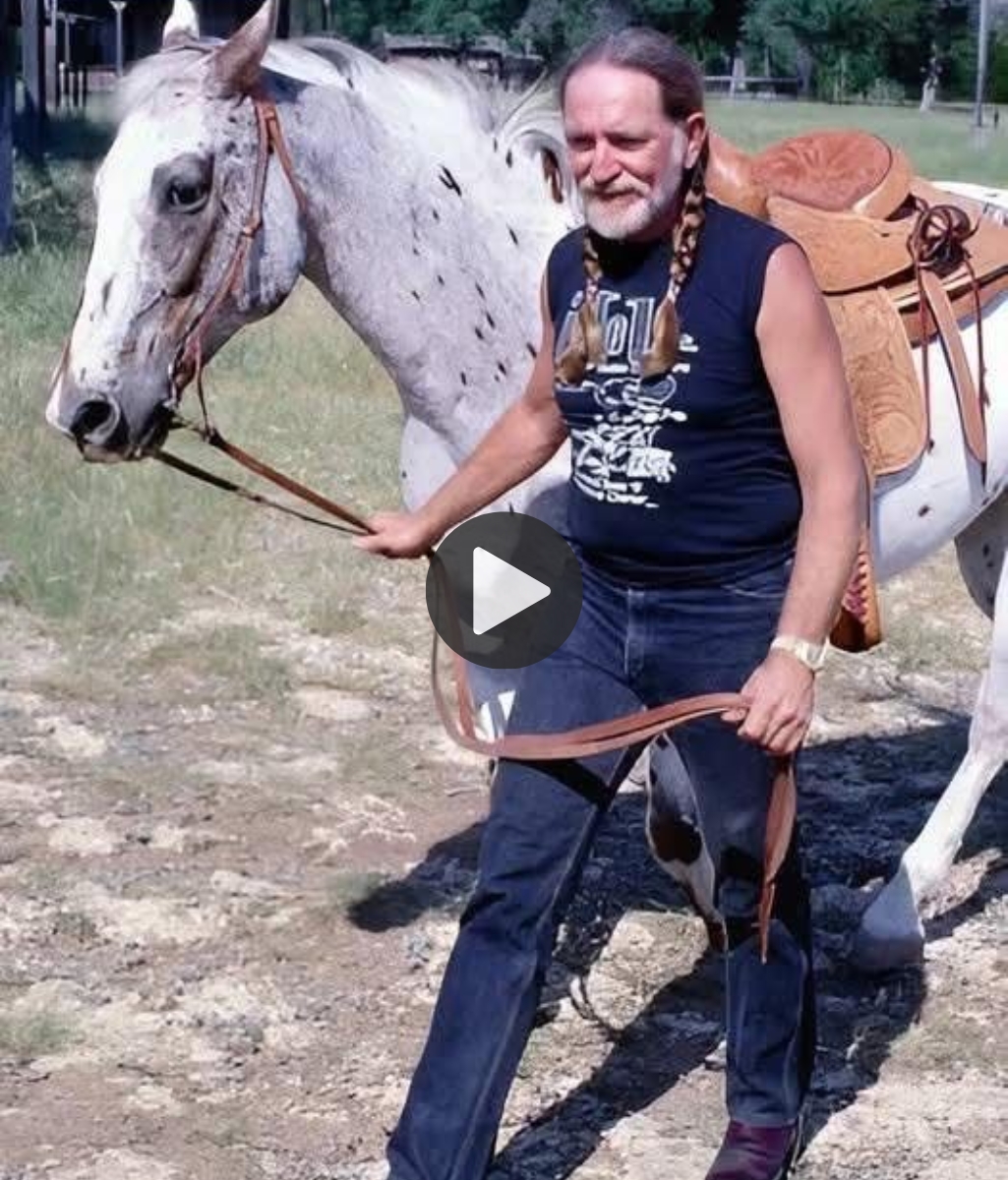
There are moments in life that shimmer quietly, far away from the spotlight, yet carry more weight than the grandest stage. For Willie Nelson, one such moment came not with a guitar in hand beneath blazing lights, but in the saddle of a horse under the open skies of Florida’s World Equestrian Center.
Fans have followed Willie for decades—through outlaw country anthems, tender ballads, and unforgettable duets. But when a lucky fan captured him on horseback, relaxed and unguarded, something about the scene felt different. Here was not just the legend, the performer, the voice behind countless timeless songs. Here was a man returning to something primal, grounding, and deeply personal.
The World Equestrian Center in Florida is a place where horse lovers gather, where the rhythm of hooves speaks louder than applause. For Willie, who has always woven themes of freedom, open roads, and wide skies into his music, this setting seemed almost inevitable. Watching him sit tall in the saddle, reins loose in his hands, you could sense how natural it was for him—almost as if the music he’s carried across the decades found its echo in the steady gait of the horse beneath him.
His smile in that moment was not the polished grin of an entertainer, but the genuine joy of a man who has lived fully and still finds wonder in the simplest of things. The horse moved with calm confidence, mirroring its rider’s ease. And as the fan’s camera caught the sway of the scene—the sun warm, the crowd hushed—there was something eternal in it.
For many fans, this video has become more than just a clip to share online. It feels like a glimpse behind the curtain, into the private spaces of a man who has given so much of himself to the world. Willie’s songs have always been about connection—between people, between the land and its caretakers, between love and loss. Here, in this horseback ride, was another kind of connection: man and animal, silence and sound, past and present.
Perhaps that’s why the moment struck such a chord. In a time when celebrities are often defined by headlines and scandals, seeing Willie Nelson in his element, doing something so pure, reminded us of what made him beloved in the first place. His authenticity. His refusal to let fame strip away the layers of humanity. His gentle defiance against being anything other than himself.

It is also symbolic. The horse has long stood as an emblem of freedom, resilience, and the open frontier—values that have threaded through Willie’s music from “On the Road Again” to “Blue Eyes Crying in the Rain.” Watching him ride at the World Equestrian Center, fans saw not just an aging legend, but a continuation of the same spirit that carried him through smoky honky-tonks, political struggles, and personal storms. The reins in his hands seemed to hold not just the horse’s path, but the essence of a life lived on his own terms.
Some who were present that day said you could feel the silence deepen as he passed by, the way a room grows still during a song that hits too close to home. Others recall the laughter and cheers, as if everyone knew they were part of something rare and fleeting. In truth, both reactions were right. Willie Nelson on horseback is both a gentle reminder and a celebration—of roots, of endurance, of the beauty in slowing down.
For Willie, perhaps it was nothing extraordinary—just another ride. But for the fans who watched, and for those who later saw the footage online, it was a reminder of how fragile, powerful, and unrepeatable certain moments can be. In that quiet ride across the Florida grounds, he gave us another gift—not a song this time, but a memory etched in motion, a scene that speaks louder than words.
Years from now, when people speak of Willie Nelson, they will remember the braids, the bandanas, the guitar named Trigger, and the songs that defined generations. But they may also recall this—an old cowboy, still smiling, still free, still finding joy in the saddle. And in that image, they will find the same truth his music has always carried: that life’s greatest treasures are not in the applause, but in the moments that make us feel alive.
